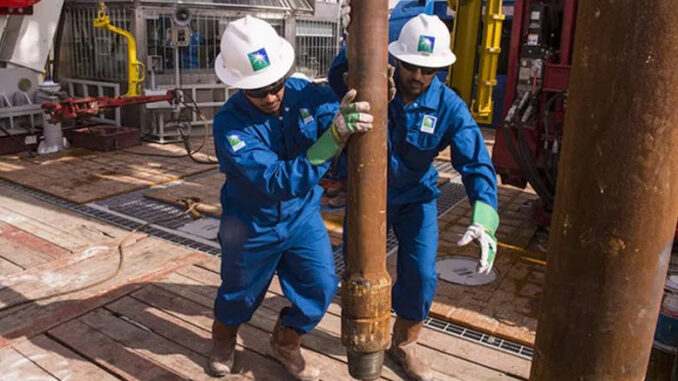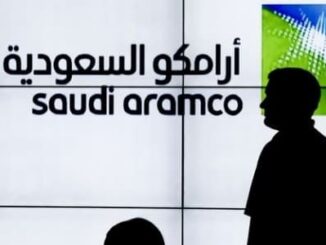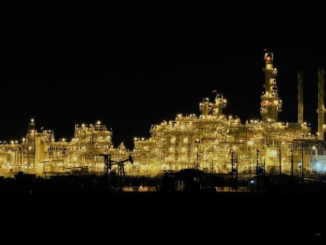
Despite OPEC+ output reductions and the extra 1 million barrels per day (bpd) voluntarily cut by Saudi Arabia that lowered the Kingdom’s crude oil output to around 8 million bpd in February and March (the lowest level since 2008), Saudi Aramco remained the most profitable oil company in the world in the first quarter (Q1) of this year, surpassing the five major international oil companies (IOCs) combined.
It is true that oil companies have benefited from the higher oil prices and refining margins in Q1 2021, but Aramco’s net profit for that period was $21.7 billion, while the consolidated net profits from the five major IOCs (ExxonMobil, Chevron, Shell, BP, and Total) were $17.8 billion.
Also, Aramco has successfully achieved higher cash dividends of $18.8 billion while the comparable figure for the five major IOCs combined was $10.8 billion.
Looking back at their 2018 and 2019 financials, Aramco was also the most profitable and achieved higher revenues than the other leading IOCs combined.
The financials for last year were different to all the IOCs, who registered huge losses, with Aramco achieving net income of $49.07 billion compared to $88.2 billion in 2019.
Despite all the challenges that the world has faced during the COVID-19 pandemic, Aramco has achieved outstanding performance on all fronts.
The big losses made by IOCs in 2020 do not bode well for future investment in key energy infrastructure, as they look to slash expenditure across operations and exploration.
However, this has not been the case for Aramco as it kept its major energy infrastructure going, despite the low prices, emphasizing the primary role of Saudi Arabia as the only swing producer and the most reliable oil exporter.
Aramco’s resilience in facing challenges with operational flexibility and financial agility means its investors are in safe hands and its customers enjoy the most reliable barrel, even during crises.
This operational flexibility is indeed unique, allowing the world’s largest oil company to rapidly increase or decrease production as circumstances dictate.
Such operational flexibility was evident when Saudi Aramco swiftly cut production from a historical peak of 12.3 million bpd in April 2020 to about 7.5 million bpd in June, within only two months, while other large producers would have taken longer periods to adjust only 200,000 bpd.
• Faisal Faeq is an energy and oil marketing adviser. He was formerly with OPEC and Saudi Aramco. twitter: @faisalfaeq



